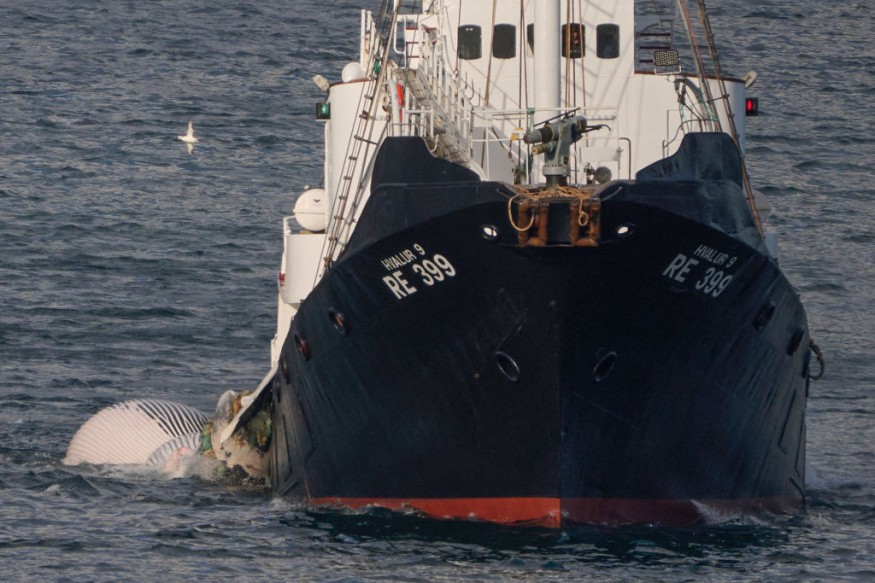
Icelandic officials have decided to resume fin whaling after a two-month moratorium as long as the whales are given a fast death.
In earlier hunts, the whales were allowed to bleed out via harpoon for an extended period of time until they died.
Fin Whaling Resumes in Iceland
After a two-month hiatus, the Icelandic government announced that it would continue fin whale hunting, but under revised rules that called for killing the animals as swiftly as possible to minimize suffering.
Whaling has experienced a history of prohibition within the country.
After numerous whale species faced the brink of extinction, the International Whaling Commission, an entity overseeing the conservation of whales, implemented a ban in 1986.
Following a 20-year hiatus, Iceland resumed hunting fin whales, which can reach lengths exceeding 65 feet, in 2006.
Iceland, Norway, and Japan have all started back up their commercial whaling operations despite the persistent endangerment or extinction of several whale species.
But in June of this year, Reykjavik once more banned commercial whaling. This choice was made after a government-commissioned study showed that the procedure broke Iceland's rules on animal welfare because harpooned whales often suffered for hours before they died.
After it was determined that better hunting techniques were viable, the hunting was allowed to continue.
No More Harpooning
According to the Ministry of Food, Agriculture, and Fisheries, a law containing more stringent guidelines for hunting gear and tactics as well as more oversight would be published.
A course on whale biology, pain perception, and stress would be needed for whale hunters.
Additionally, they will be given comprehensive instructions on how to harpoon the creatures to ensure a speedy demise.
However, an organization that promotes animal welfare, Humane Society International, denounced the action as a "devastating" abdication of a chance to "do the right thing."
The organization's executive director Ruud Tombrock asserted that there is just no way to avoid being cruel and bloody while harpooning whales at sea, no number of modifications is enough.
Commercial Whaling
Only one whaling business, Hvalur, is still operating in the nation, and its permit to hunt fin whales will expire within 2023.
2020 saw the end of another whaling company, which claimed it was no longer profitable.
Annual quotas permit the killing of 217 minke whales, one of the smallest kinds, and 209 fin whales, the second-longest marine animal after the blue whale.
But because there is less demand for whale flesh, catches have dropped significantly in recent years.
In Iceland, there has been a notable rise in opposition to whaling, and a majority of the population now supports putting an end to this practice.
According to a survey conducted in early June, only 29% of Icelanders expressed support for whaling, while 51% were against it.
Interestingly, the age group most in favor of whaling was those over 60.
Whaling and fishing have historically been significant drivers of Iceland's economic growth.
The nation's tourist industry, which now includes activities like whale-watching tours, has, however, seen tremendous expansion during the previous 20 years. Because of this, the goals of these two important economic sectors have changed.
In contrast, Japan, the largest global consumer of whale meat, resumed commercial whaling in 2019 after a 30-year hiatus. This move by Japan has significantly reduced the demand for Icelandic whale meat imports.
Related Article : Faroe Islands Hunt 'Grindadráp' Continues with Bloody Shores from Over 500 Dolphins Slaughtered
© 2025 NatureWorldNews.com All rights reserved. Do not reproduce without permission.





